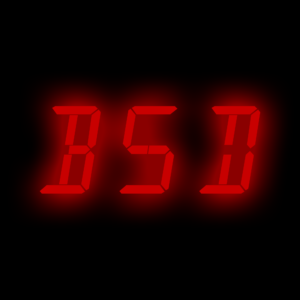 Later this month, we’re doing a 7-part series on the BSD family of operating systems: FreeBSD, OpenBSD, NetBSD, and DragonFlyBSD. Many readers have heard of these operating systems but have never fired them up. I’m going to give them a whirl with the goal of installing Nginx + PHP-FPM + MariaDB + WordPress.
Later this month, we’re doing a 7-part series on the BSD family of operating systems: FreeBSD, OpenBSD, NetBSD, and DragonFlyBSD. Many readers have heard of these operating systems but have never fired them up. I’m going to give them a whirl with the goal of installing Nginx + PHP-FPM + MariaDB + WordPress.
Tease: I only succeed on one.
I’m excited about this series because my roots are in the BSD world (SunOS 4) and these operating systems are all a bit more…I’m not sure what the word is. Raw? Primitive? I don’t in any way mean to suggest that these systems are “primitive” in terms of technology, but compare the experience to Linux.
On Linux, I’d apt install these packages, enable/start them with systemctl, drop in my nginx config for the site, run certbot, and I’m done. Or heck, I could use Docker.
With the BSD family, the basics are there: “pkg install nginx” is no different than apt. But I find I’m editing config files more in BSD. The system feels more Unixy to me than Ubuntu, for example, where a lot of the lower-level sysadmin stuff can be ignored. You’ll see what I mean as I go through.
Also, with BSD you can rebuild everything (kernel and userland) with a single “make world”, which is very different than Linux, which lashes together hundreds of packages to make a “distro”. In BSD land, there’s no such thing as a “FreeBSD distro”. FreeBSD is complete. It’s sort of like BSD is Python, and Linux is Perl.
Snap, that was an analogy I’m sure I’ll hear about in the comments.
I do use OpenBSD regularly, and I adore it for the perfection of its documentation if for no other reason. OpenBSD just feels “homey” to me. It’s like I’ve stepped back onto my college lab. The OS expects a lot out of you as a sysadmin but I find it a pleasant environment (though perhaps not for web serving. Tease!)
FreeBSD is an operating system I keep meaning to spend more time with. I enjoyed playing with it here and may use some FreeBSD VMs in the future.
There are, of course, other BSDs besides these four.
FreeNAS/TrueNAS is based on FreeBSD. GhostBSD is desktop-oriented. MidnightBSD is a FreeBSD fork, and NomadBSD is designed to be a livecd-oriented FreeBSD. I do use pfSense at home, and that’s FreeBSD under the covers. And there are many that have come and gone. A notable effort was PC-BSD, which aimed to be a desktop BSD but stopped development in 2020.
Stay tuned!

In the movie Die Hard, Nakatomi Tower runs on the fictional BSD 9.2.























“Sorry, I only drink locally brewed IPAs”.
https://i.redd.it/bsc4d5utdob71.jpg